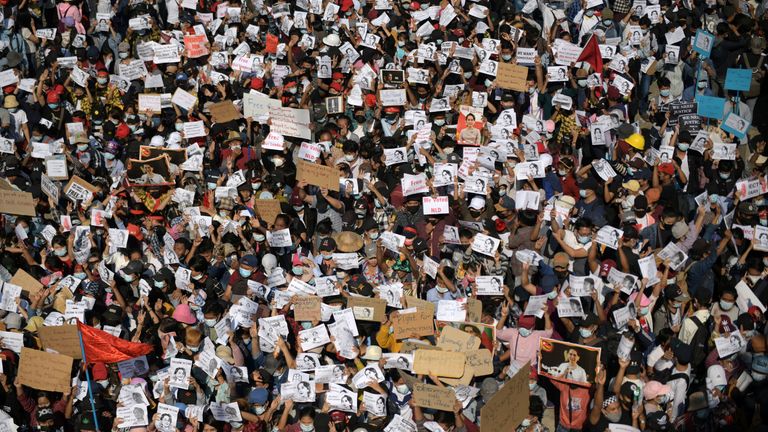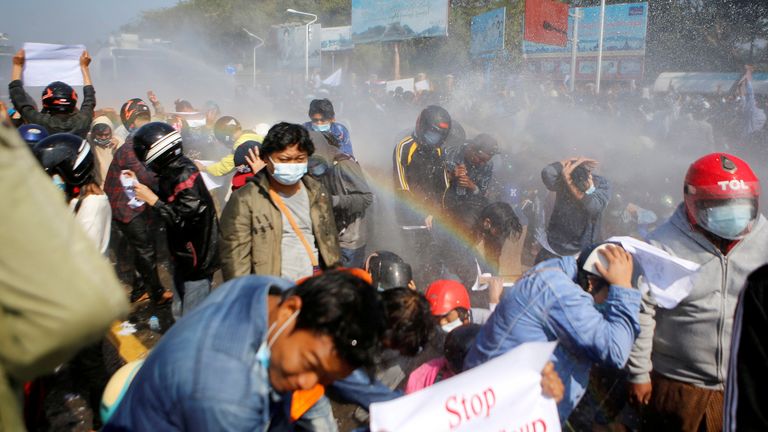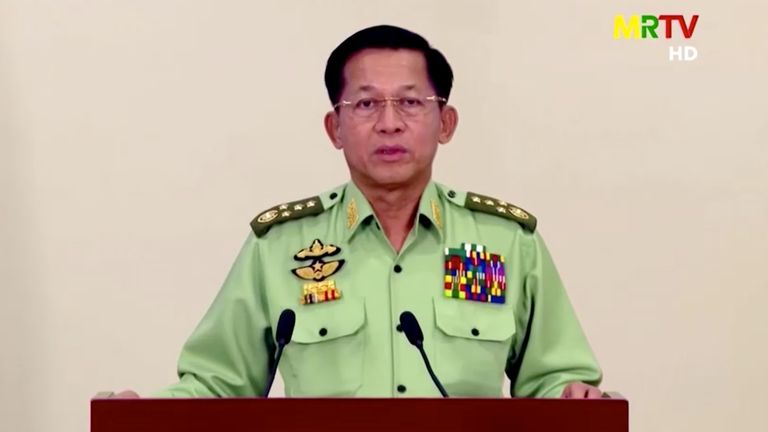At least 27 people have been arrested as Myanmar's biggest demonstrations in more than a decade continue, with police firing water cannon at protesters to disperse crowds.
Four straight days of protests have raged on after the 1 February coup and detention of elected civilian leader Aung San Suu Kyi, who is being held on charges of illegally importing six walkie-talkies.
A journalist from the Democratic Voice of Burma said he was among those arrested as he filmed a rally and also claimed people had been beaten.
The large-scale protests in several cities are being held in defiance of new laws imposed by Myanmar's current military rulers that effectively ban peaceful public protests in Mandalay and Yangon.
Rallies of more than five people have been outlawed and an 8pm to 4am curfew put in place, but large crowds are still turning out to chant slogans and show their anger at the new military rule.
Witnesses reported water cannon being fired at protesters in Naypyidaw, Bago, Mandalay and Magway - where there have also been reports three police officers tried to shield demonstrators.
Residents said bridges connecting Yangon to populous districts outside were shut early on Tuesday before being opened to some traffic.
Myanmar had been under military rule for almost half a century until a nominally civilian government was introduced in 2011.
Ms Suu Kyi's National League for Democracy (NLD) party won last November's election in a landslide, but her opponent - and now junta leader - General Min Aung Hlaing has made unproven claims of electoral fraud.
On 1 February, the military blocked the new session of parliament from convening and detained Ms Suu Kyi and other ruling party members.
Protesters are demanding that power is restored to the deposed government and have orchestrated a growing civil disobedience movement affecting hospitals, schools and government offices.
"The coup always comes into our thoughts, every time we eat, work and even during resting time," said Yangon resident Khin Min Soe.
"We are so disappointed and so sad whenever we think about why this has befallen us again."
Promises from junta leader Min Aung Hlaing to eventually hold a new election have drawn scorn from protesters.
In his first televised address as leader, he said the junta would form a "true and disciplined democracy" different to previous eras of military rule which left Myanmar in isolation and poverty.







